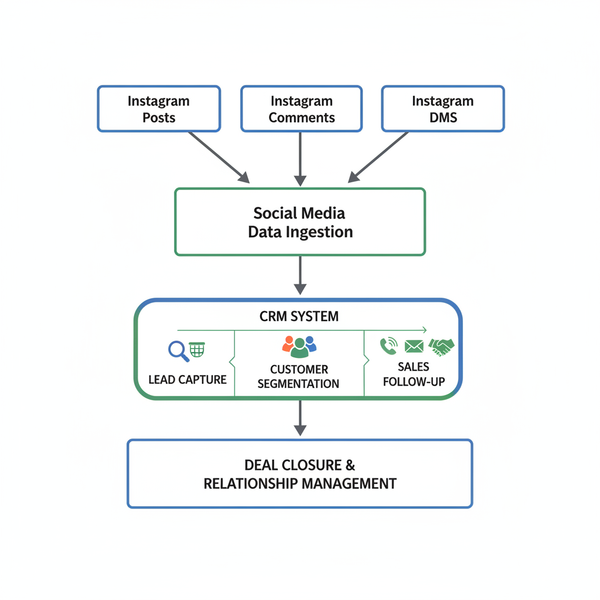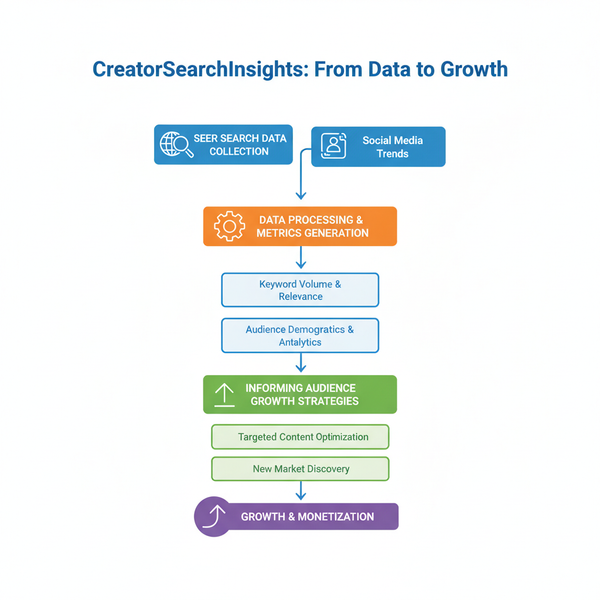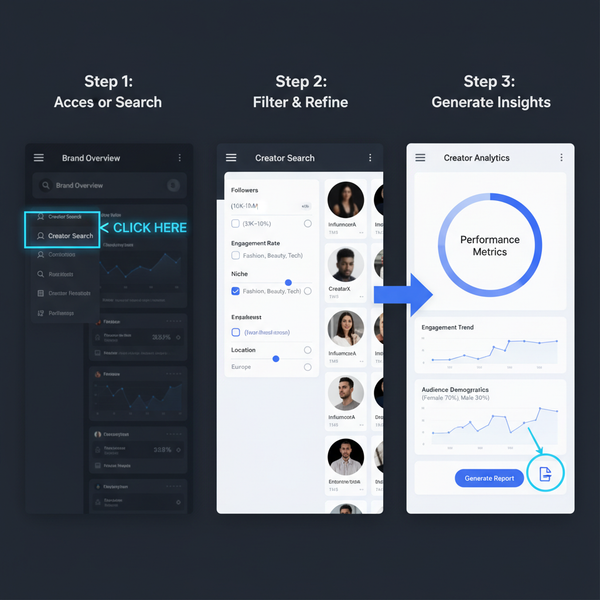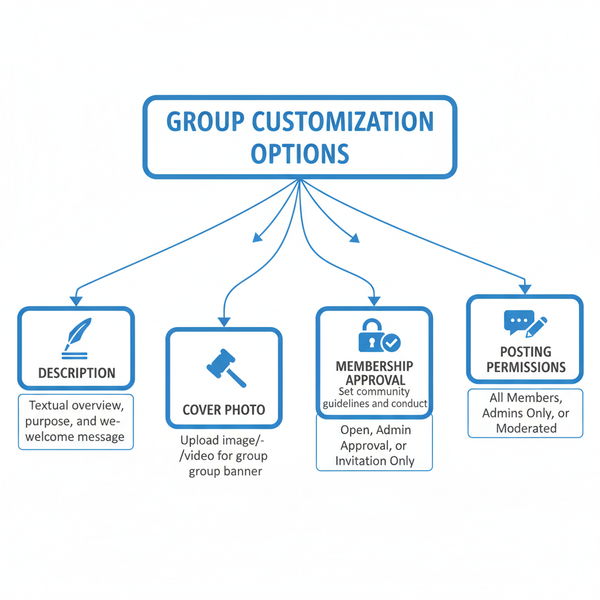Popular Photo Sizes for Print and Digital Explained
Learn the most common photo sizes for print and digital use, including aspect ratios, DPI/PPI guidelines, and platform-specific image dimensions.
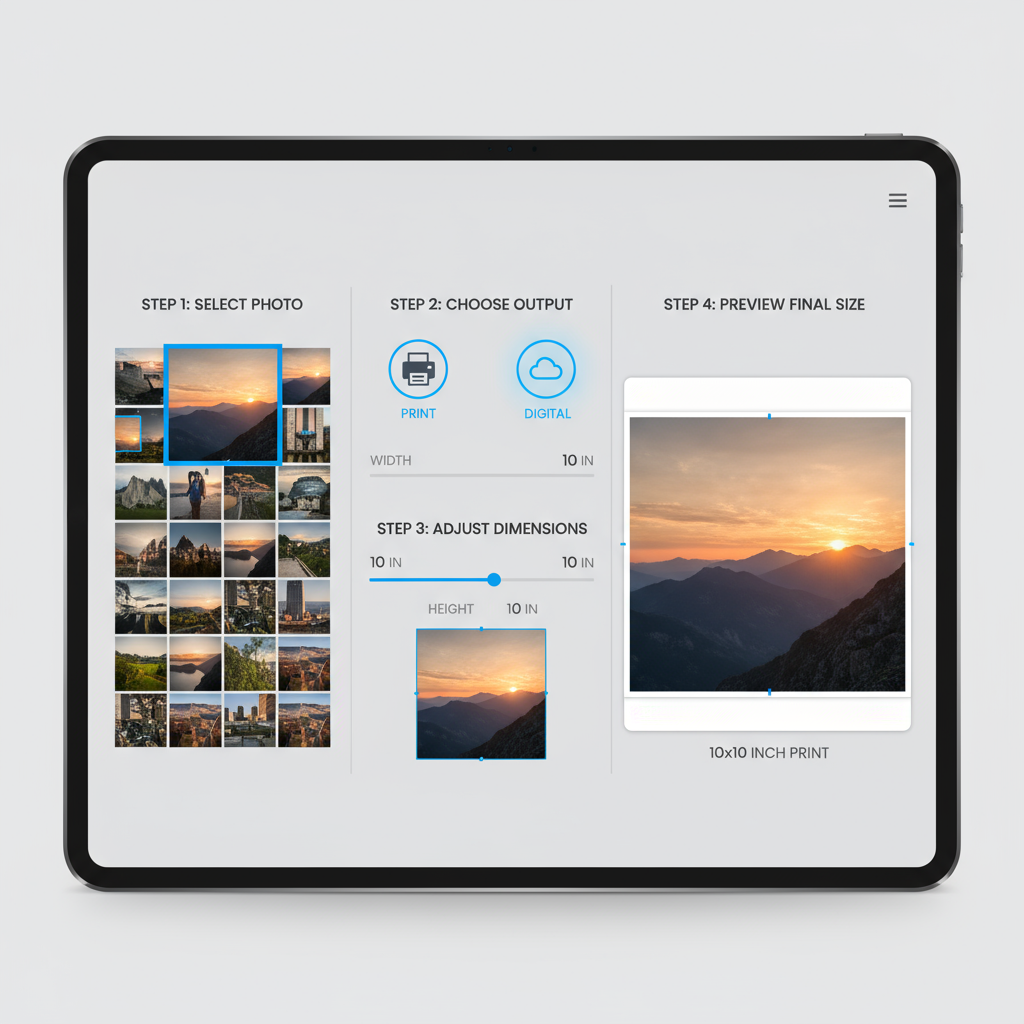
Introduction: Understanding Popular Photo Sizes
Whether you’re printing cherished family portraits or sharing crisp shots on social media, understanding popular photo sizes is essential for achieving the best visual results. Photo size choices affect composition, image resolution, and the final impression your photos make. Different purposes—like framing a print, creating a scrapbook, designing marketing materials, or posting online—require specific dimensions and aspect ratios.
By becoming familiar with both print and digital photo size standards, you can select formats that suit your needs, prevent awkward cropping, and ensure high-quality presentation across all media.

---
Difference Between Print and Digital Photo Sizes
While both print and digital images are expressed by width and height, the units differ. Print photo sizes are commonly measured in inches (e.g., 4 × 6 inches), while digital photo sizes are described in pixels (e.g., 1080 × 1080 px).
Key differences include:
- Units of measurement: Inches for print; pixels for digital
- Resolution dependence: Print quality relies on DPI/PPI; digital on screen resolution
- Output medium: Prints for paper or physical display; digital formats for monitors and mobile screens
---
Common Print Photo Sizes and Their Uses
In print, certain photo sizes are industry standards due to their widespread use and availability of frames.
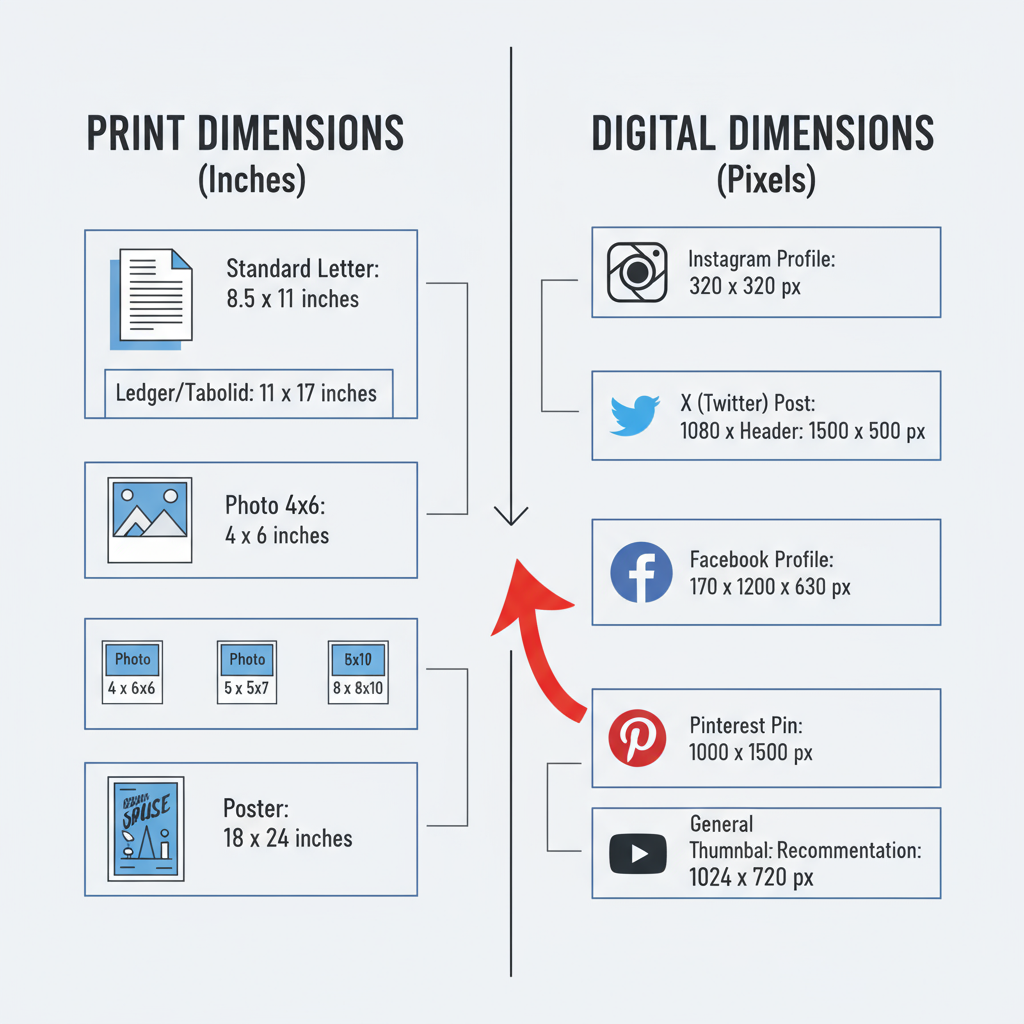
Here are common print sizes and their best applications:
4 × 6 inches
- Use Case: Standard snapshots, albums
- Aspect Ratio: 3:2 (matches most DSLRs)
- Pros: Convenient, frame availability
5 × 7 inches
- Use Case: Portraits, gifts
- Aspect Ratio: ~7:5
- Pros: Larger impact while fitting smaller spaces
8 × 10 inches
- Use Case: Wall art, studio portraits
- Aspect Ratio: 5:4
- Pros: More detail and presence
Other Notable Print Sizes
- 11 × 14 inches: Gallery walls, feature prints
- 12 × 18 inches: Posters, decor
- 16 × 20 inches: Significant wall art
- 20 × 30 inches: Oversized display prints
Tip: Confirm your image’s aspect ratio before printing to avoid unintended cropping.
---
Common Digital Photo Sizes for Social Media Platforms
Social networks specify image dimensions to ensure clarity and consistent display across devices.
Popular Digital Sizes by Platform
| Platform | Image Type | Recommended Size (px) | Aspect Ratio |
|---|---|---|---|
| Square Post | 1080 × 1080 | 1:1 | |
| Portrait Post | 1080 × 1350 | 4:5 | |
| Cover Photo | 820 × 312 | ~2.63:1 | |
| Twitter/X | Header | 1500 × 500 | 3:1 |
| Pin | 1000 × 1500 | 2:3 | |
| YouTube | Thumbnail | 1280 × 720 | 16:9 |
---
Aspect Ratios Explained
The aspect ratio describes a photo’s proportional width to height, affecting frame fit and on-screen appearance.
Common Aspect Ratios
- 3:2: Common for 35mm film/DSLR; perfect for 4 × 6 prints
- 4:3: Used in many compact cameras and smartphones
- 1:1: Square; Instagram favorite
- 16:9: Widescreen; ideal for video and web banners
Why It Matters: Altering aspect ratios without care can crop important details or add unwanted borders.
---
How Resolution (DPI/PPI) Affects Print Quality
Resolution represents pixel or dot density:
- PPI (Pixels Per Inch): For digital screens
- DPI (Dots Per Inch): For printed output
Guideline: 300 DPI is the standard for high-quality prints.
Example: A 3000 × 2000 px image at 300 DPI can print at 10 × 6.67 inches without losing quality.
---
Tips for Resizing Images Without Losing Quality
- Use non-destructive editing programs (Photoshop, GIMP)
- Maintain original aspect ratio to prevent distortion
- Upscale with AI tools for better sharpness
- Avoid repeated compression cycles
- Start with the highest resolution available
---
Choosing the Right Size for Personal Projects
Frames and Albums
- Albums favor 4 × 6 inches for affordability and fit
- Ready-made frames fit 5 × 7 or 8 × 10 inches; custom for unique sizes
Scrapbooks
- Smaller prints (3 × 3, 4 × 4) suit collages
- Keep aspect ratio consistency for visual harmony
---
Choosing the Right Size for Professional Purposes
Professional applications demand precision and brand consistency.
Marketing Materials
- Maintain 300+ DPI for print
- Use CMYK for accurate print reproduction
Websites and Ads
- Balance resolution with load speed
- Follow display ad guidelines for optimal clarity
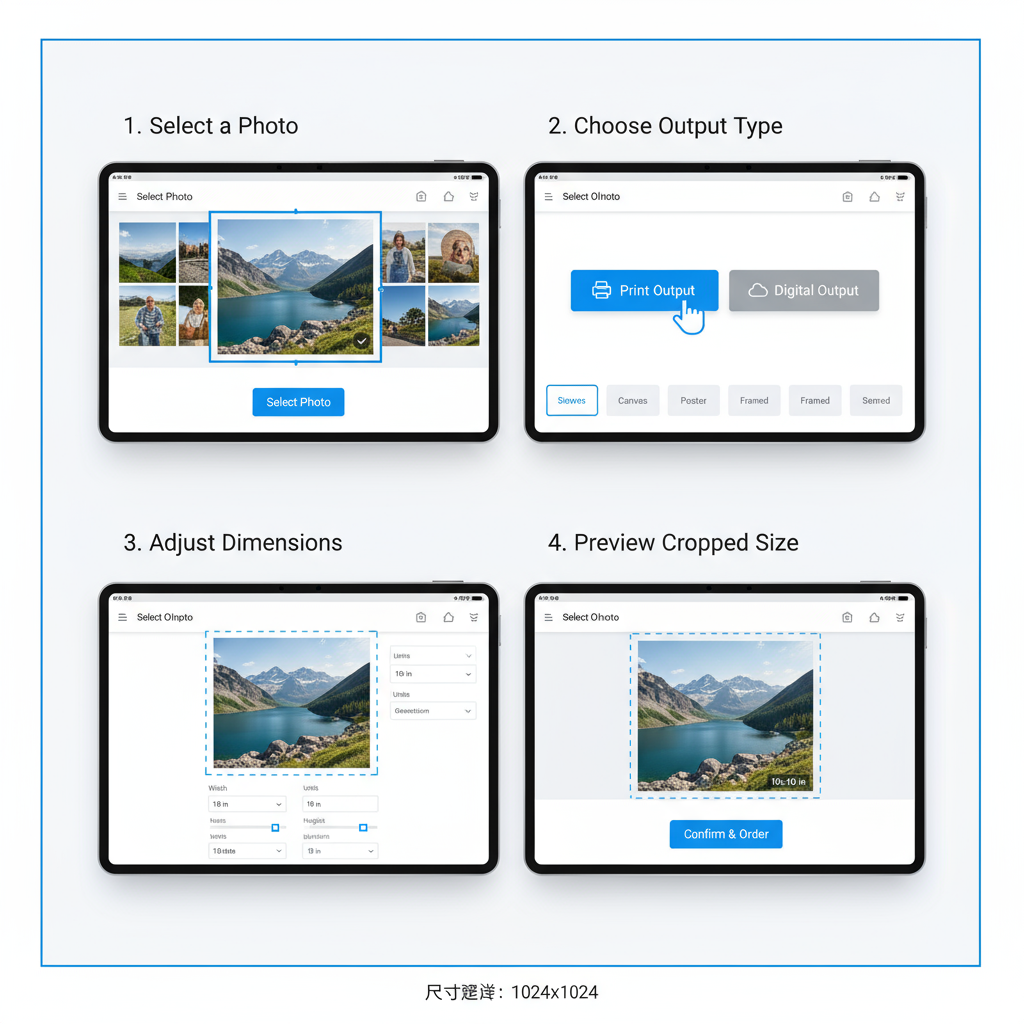
---
Best Tools and Software for Resizing Photos
Desktop Tools
- Adobe Photoshop: Industry leader in editing and resizing
- GIMP: Open-source and powerful
- Affinity Photo: Professional results at a budget-friendly price
Online Editors
- Canva: Quick resizing with templates
- Fotor: Fast optimization
- Pixlr: Browser-based convenience
AI-Powered Options
- Let’s Enhance: Intelligent enlargement
- Topaz Gigapixel AI: Superior detail retention
---
Common Mistakes to Avoid When Selecting Photo Sizes
- Ignoring aspect ratio (results in cropped elements)
- Using low-resolution for print (leads to poor results)
- Over-enlarging causing pixelation
- Not optimizing for correct platform dimensions
- Forgetting bleed allowance in print design
---
Quick Reference Size Chart
| Type | Size | Aspect Ratio | Primary Use |
|---|---|---|---|
| 4 × 6 in | 3:2 | Standard snapshots | |
| 5 × 7 in | 7:5 | Portraits, gifts | |
| 8 × 10 in | 5:4 | Wall display | |
| Digital | 1080 × 1080 px | 1:1 | Instagram square post |
| Digital | 1920 × 1080 px | 16:9 | HD websites, videos |
---
Conclusion and Next Steps
Mastering popular photo sizes allows hobbyists and professionals to present their images perfectly in print and online. Understanding aspect ratios, resolution requirements, and platform standards ensures your work looks sharp and intentional.
Keep this guide for your future creative or commercial projects, and experiment with sizes that highlight your style. Whether framing a moment or posting online, the right dimensions will elevate your photography. Start refining your photo size choices today for sharper, more impactful results.

